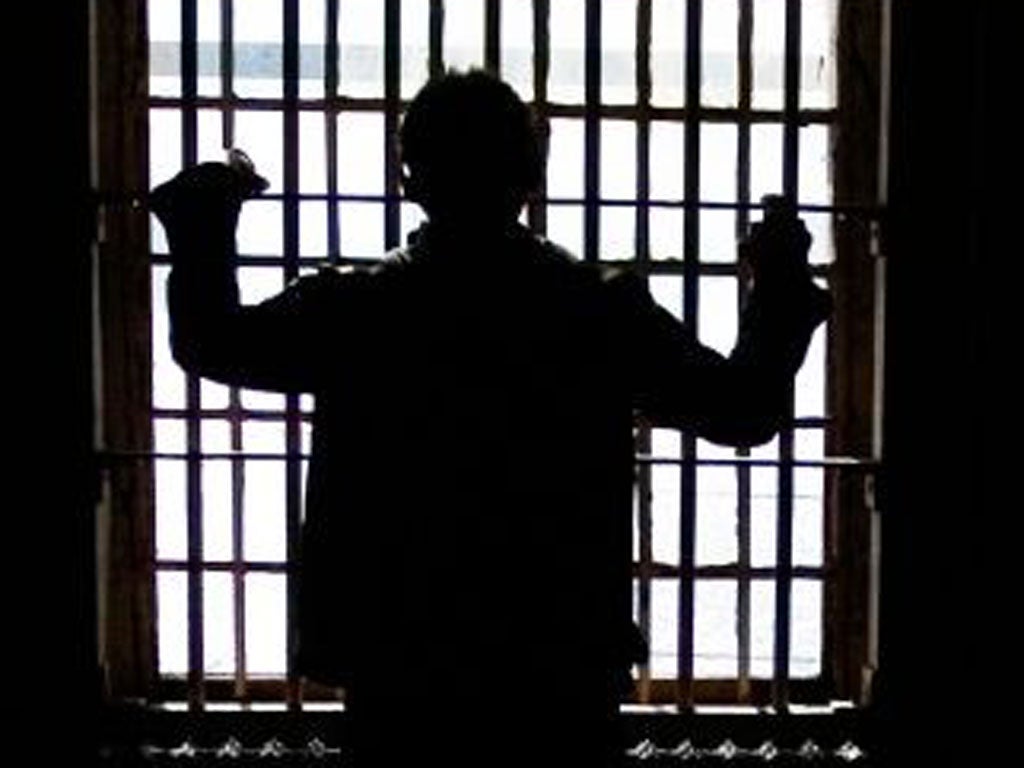'We're here for the children, not the mothers. They've done nothing wrong'

Your support helps us to tell the story
From reproductive rights to climate change to Big Tech, The Independent is on the ground when the story is developing. Whether it's investigating the financials of Elon Musk's pro-Trump PAC or producing our latest documentary, 'The A Word', which shines a light on the American women fighting for reproductive rights, we know how important it is to parse out the facts from the messaging.
At such a critical moment in US history, we need reporters on the ground. Your donation allows us to keep sending journalists to speak to both sides of the story.
The Independent is trusted by Americans across the entire political spectrum. And unlike many other quality news outlets, we choose not to lock Americans out of our reporting and analysis with paywalls. We believe quality journalism should be available to everyone, paid for by those who can afford it.
Your support makes all the difference.Sandra McConnell did not expect to go to prison. She knew the charge against her – conspiracy to supply drugs – was serious, but it dated from years earlier. Since then she had got her life together. She had been off drugs for nearly two years. She had her own three-bedroom house in Birmingham where she lived with her four-year-old daughter. She had started an Open University course. And she was pregnant.
"I was expecting to walk out of the court, but I got sent down," she says, sitting with her baby, Morrison, on her knee. She has just come in from the garden, where she has been entertaining her three-month-old son. But this is not a normal garden. It stands in the lee of a 10-foot metal fence with spikes on the top. Morrison was born in prison, and he will spend the first nine months of his life there – until his mother has completed her sentence.
The number of women in prison in England has more than doubled over the past two decades to 4,144 – the highest rate of female imprisonment in the European Union. But because so many sentences are short, that figure disguises the fact some 10,181 women were put behind bars last year alone. More than half of those are mothers. Thanks to the mother and baby units which the Prison Service has established at eight of Britain's 13 women's jails, it is now possible for about 80 of those children to be with their mothers – but behind bars. One unit is at Eastwood Park, a closed women's prison in a rural setting between Gloucester and Bristol.
On one of the leather sofas sits 18-year-old Emma, bottle-feeding her 11-week-old son. "He's on Cow & Gate Hungrier Baby feed," she says proudly. She is wearing a black top and trousers. Prisoners are allowed to wear their own clothes. It helps raise self-esteem, which is perennially low among women prisoners.
"I didn't know I was pregnant when I was sentenced," says Emma, who prefers not to reveal her offence. When she was eight months pregnant, she was transferred from the juvenile wing. "It was a shock coming here," she said. "You don't get locked in your room. The beds have something like a proper mattress and rooms have a proper toilet."
The mothers are expected to work or attend classes to deal with their offending behaviour and educate themselves for resettlement.
Mark Thompson, the governor of the unit, is unrepentant about its demanding standards. "It is not here for the mothers," he says. "It's for the children who have not done anything wrong and who deserve to have a good start in life ."
Chan, 24, from China, is full of praise. "It is very comfortable," she says. "The officers are very helpful. They are very reliable. If your baby is ill, he's straight to the clinic. The officers are like family." Around one in five women in British jails are foreign nationals. Chan had just completed a Masters degree as an interpreter when she was arrested for identity fraud. "Other people put my photo in their passport and I took their exams for them," she confesses. "I did it while waiting for a visa extension so I could work."
She cradles her nine-week-old on her lap and says: "We don't have this kind of unit in China. But I wouldn't have had a jail sentence in China for an offence as minor as this."
The Prison Service leaflet advising women thinking about applying to an MBU warns: "Your baby will miss having contact with normal daily life, such as family, traffic, shops, parks and animals." At Eastwood Park, staff take the babies to supermarkets, parks, libraries or swimming baths from when they are just a few weeks old to broaden their range of experiences.
"There is so much we can't replicate," says Mr Thompson.
Join our commenting forum
Join thought-provoking conversations, follow other Independent readers and see their replies
Comments